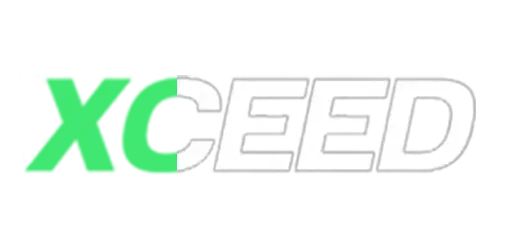Understanding the Job Description
A thorough analysis of a job description is essential for a successful job interview. The job description not only specifies the primary responsibilities and essential abilities, but it also gives information about the corporate culture and expectations. Begin by reading the entire description, giving special attention to the duties and qualifications specified. This will assist you in determining the basic competencies required for the work, as well as the specific qualities sought by the business.
To effectively tailor your resume and interview responses, focus on identifying keywords and phrases that recur throughout the job description. These keywords often highlight the most important aspects of the role and what the employer values most. Incorporating these terms into your resume and practice responses can demonstrate your alignment with the job requirements and increase your chances of making a strong impression.
In addition to understanding the job description, researching the company and the role is essential. Visit the company’s website, read through their mission statement, and explore recent news articles or press releases to gain a deeper understanding of their goals and values. This knowledge will not only help you frame your responses in a way that aligns with the company’s culture but also show your genuine interest in the organization.
Moreover, consider looking up employee reviews on sites like Glassdoor or LinkedIn to gain insights into the work environment and company culture. Understanding the company’s culture can help you determine if it is a good fit for you and prepare questions to ask during the interview. Demonstrating that you are well-informed about the company and the role will set you apart from other candidates and showcase your proactive approach.
By thoroughly analyzing the job description and conducting comprehensive research on the company, you can align your experience and skills with what the employer is seeking. This preparation will not only boost your confidence but also significantly enhance your performance during the interview, increasing your chances of securing the job.
Crafting Your Resume and Cover Letter
Creating a strong resume and cover letter is essential in making a positive first impression on recruiters. The resume serves as a snapshot of your professional journey, highlighting achievements, skills, and experiences that are relevant to the job you seek. To ensure your resume stands out, begin by tailoring it to the specific role you are applying for. Each job application should have a customized resume that aligns closely with the job description provided by the employer. This demonstrates your genuine interest in the position and shows that you have taken the time to understand what the role entails.
When detailing your experience, focus on your accomplishments rather than just listing job duties. Use specific examples and metrics to illustrate your impact. For instance, instead of writing “managed a team,” consider “led a team of 10 to achieve a 20% increase in sales within six months.” Quantifiable achievements provide concrete evidence of your capabilities and help you stand out from other candidates.
Your skills section should also be carefully crafted. Highlight skills that are directly relevant to the job. Use keywords from the job description to ensure your resume passes through Applicant Tracking Systems (ATS) that many companies use for initial screening. Additionally, ensure that your resume is clean, well-organized, and free of any typographical errors. A polished resume reflects your attention to detail and professionalism.
The cover letter is your opportunity to convey your enthusiasm for the role and to expand on the points made in your resume. It should be addressed to a specific person, if possible, and should open with a compelling introduction that grabs the reader’s attention. Use the body of the cover letter to explain how your background, skills, and experiences make you an ideal fit for the job. Be sure to customize each cover letter to the job you are applying for, avoiding generic statements.
In conclusion, a well-crafted resume and cover letter can significantly enhance your chances of securing a job interview. By tailoring your documents to the specific job, highlighting your achievements with concrete examples, and maintaining a professional and organized presentation, you can make a strong impression on recruiters and move closer to landing your desired role.
Preparing for Common Interview Questions
One of the most crucial aspects of preparing for job interviews is anticipating and crafting responses to common interview questions. A well-thought-out response can set you apart from other candidates. Questions such as “Tell me about yourself,” “What are your strengths and weaknesses?” and “Why do you want to work here?” are staples in the interview process. Structuring your answers using the STAR method—Situation, Task, Action, Result—can significantly enhance your ability to communicate your experiences and achievements effectively.
The STAR method involves detailing a specific situation you were in, describing the tasks you were responsible for, outlining the actions you took, and highlighting the results of those actions. For instance, when asked, “Tell me about yourself,” you could structure your response to provide a brief overview of your professional background, emphasizing key achievements and experiences that are relevant to the job you’re applying for.
When addressing your strengths and weaknesses, it is important to be honest yet strategic. Highlight strengths that align with the job requirements, and when discussing weaknesses, focus on areas where you have made improvements. For example, if you mention a past weakness in time management, you could discuss the steps you have taken to improve this skill and how it has positively impacted your work.
Behavioral and situational questions are designed to evaluate how you have handled various scenarios in the past and how you might handle future challenges. To prepare for these, reflect on your past experiences and identify examples that showcase your problem-solving abilities, leadership skills, and adaptability. Technical or role-specific questions require a thorough understanding of the job’s technical demands. Reviewing the job description and brushing up on relevant skills and knowledge will help you provide confident and accurate responses.
Effective preparation for common interview questions not only demonstrates your qualifications but also shows your commitment and enthusiasm for the role. By leveraging the STAR method and being ready for a range of question types, you can approach your interview with confidence and poise.
Practicing Your Interview Skills
Practicing your interview skills is a critical component of preparing for job interviews. One effective method is to engage in mock interviews. These simulated interview scenarios can help you become more comfortable with common interview questions and improve your overall performance. Conducting mock interviews with friends, family, or mentors can provide valuable feedback on your responses, helping you to refine your answers and boost your confidence.
In addition to personal mock interviews, a wealth of online resources and tools are available to simulate interview scenarios. Platforms like Interviewing.com and Big Interview offer virtual interview practice, providing a realistic environment to hone your skills. These tools can help you familiarize yourself with a variety of interview formats, including video and phone interviews, which are increasingly common in today’s job market.
Non-verbal communication also plays a significant role in interview success. Body language, eye contact, and facial expressions can all impact the interviewer’s perception of you. Maintaining good posture, offering a firm handshake, and making consistent eye contact can convey confidence and professionalism. Practicing these non-verbal cues during your mock interviews can help you develop a more polished and effective presentation.
Additionally, it is essential to present yourself confidently and professionally during the interview. This includes dressing appropriately for the company culture, speaking clearly, and demonstrating enthusiasm for the role. Preparing a few questions to ask the interviewer can also show your genuine interest and engagement with the position.
Finally, the importance of post-interview follow-up cannot be overstated. Crafting a thoughtful thank-you note is a simple yet powerful way to leave a lasting impression. In your note, express gratitude for the opportunity, reiterate your interest in the position, and briefly highlight key points from the interview that underscore your qualifications. A well-crafted thank-you note can set you apart from other candidates and demonstrate your professionalism and attention to detail.


